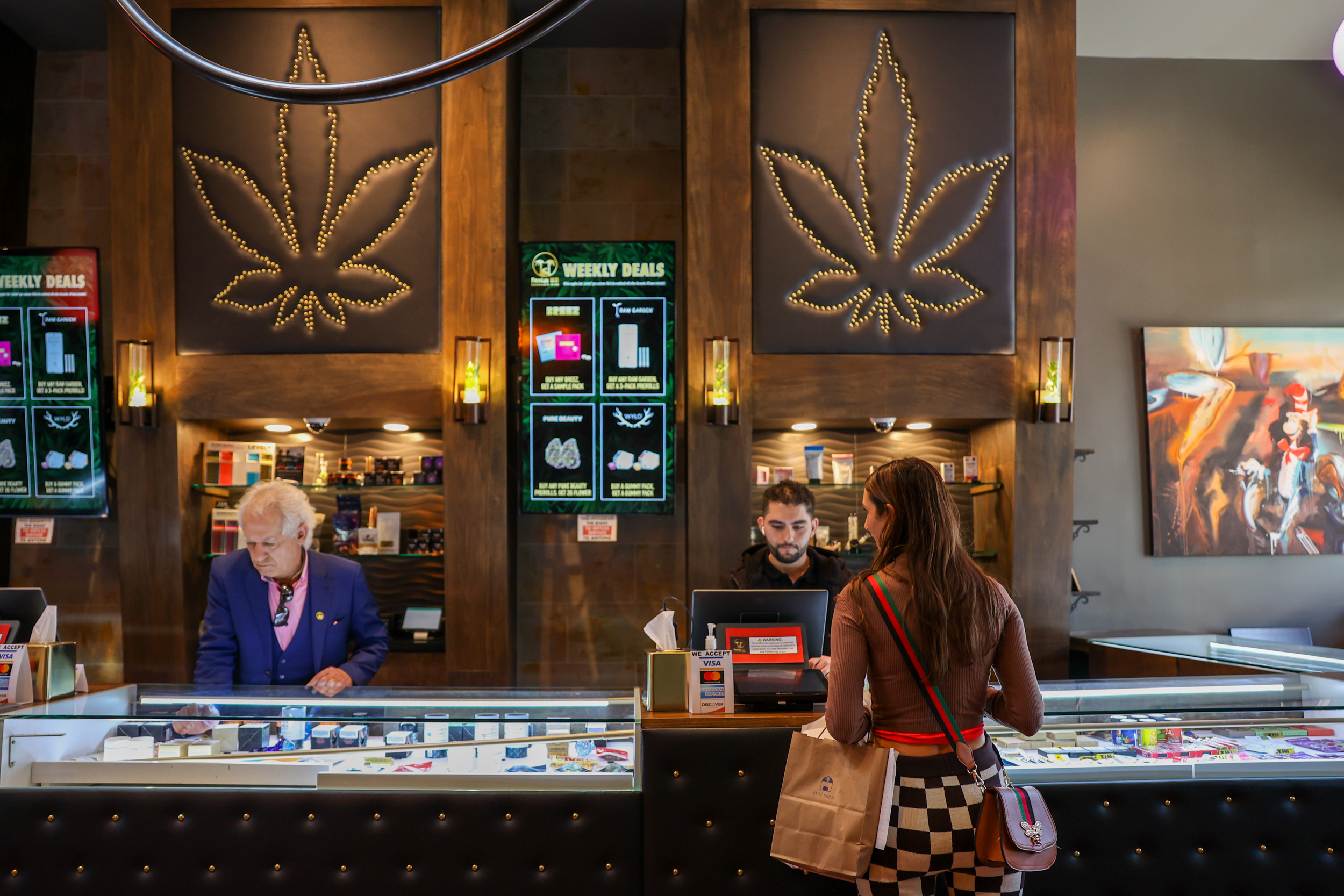A proposal to ban new cannabis businesses in San Francisco has sparked controversy in the famously weed-friendly city.
The San Francisco Board of Supervisors will vote on the ordinance, authored by Supervisor Ahsha Safaí, in early June. Safaí is already gaining support among his colleagues from both progressive and moderate political camps, as the proposal passed unanimously at the Public Safety and Neighborhood Services Committee hearing last week.
When he announced the proposal earlier this month, Safaí noted that some neighborhoods have already reached cannabis oversaturation, and as dispensaries deal in cash, they are prone to break-ins and other public-safety issues.
Additionally, strong opposition to cannabis persists among San Francisco’s Chinese American community. Several Chinese Americans, including Southeast Community Facility Commissioner Marlene Tran, attended the hearing to support of the proposal.
“We felt it made sense to ask for this pause right now to allow for the market and the industry to adjust, to provide better security and overall protections,” Safaí said at the committee meeting. “But at the same time, respecting the wishes and desires of different neighborhoods in this city and their concerns as well.”
In March, Safaí announced that he will run for mayor in November 2024.
Per city data, there are about 32 licensed medical cannabis dispensaries and 31 general retailers citywide, and more than 100 additional applications are being processed. According to SFGate, San Francisco has more cannabis stores per capita than other major California cities.
The push for a ban has won unlikely support from the existing business owners. Defying the city’s usual progressive-moderate divide, anti-cannabis activists and some cannabis business owners are standing together on this issue.
Drakari Donaldson, the CEO of the California Street Cannabis Company, spoke at the committee hearing about the struggling industry.
“We simply have too many dispensaries and not enough customers,” Donaldson said. “Rather than having thriving businesses, we are facing an extinction event.”
Donaldson said the city’s Cannabis Equity Program, created to help communities affected by the War on Drugs enter the industry, didn’t show what it was supposed to do because of oversaturation.
Critics Spoke Up
Critics have raised questions about the proposal’s intent. During public comment at the hearing, one caller suggested the city government stay out of the matter, adding that the timing is wrong.
“With so many businesses shuttered across the city, I do not believe our citizens are preventing any type of business from opening its doors in San Francisco right now,” said commenter Chris Calloway, who identified himself as a small-business owner and 25-year resident of San Francisco. “I’d like to see a fair-market approach to cannabis retail in San Francisco. Allow the market to decide on its own.”
Supervisor Connie Chan also expressed concerns about government intervention.
“Are we really dealing with saturation?” Chan said. “Or are we actually allowing some of the existing businesses to monopolize the market in San Francisco and that they end up benefiting from it?”
Chan plans to put forth an amendment that would require the City Controller’s Office to conduct a comprehensive economic review of the city’s existing cannabis law in 2027.
Safaí’s proposal already has three co-sponsors, Supervisors Catherine Stefani, Shamann Walton and Matt Dorsey. Supervisor Joel Engardio, who sits on the committee, also voted yes. Chan revealed that if her amendment passes, she, too, will vote in favor. That would give Safaí the six votes needed for a majority. The full board meeting will be on June 6.
